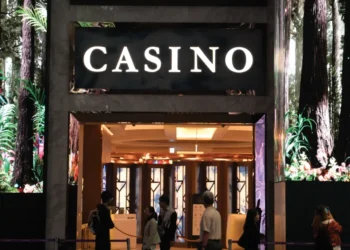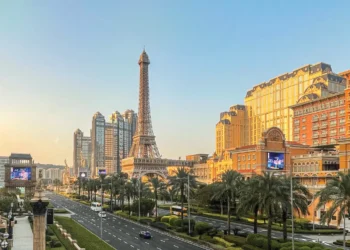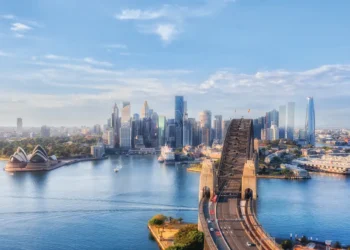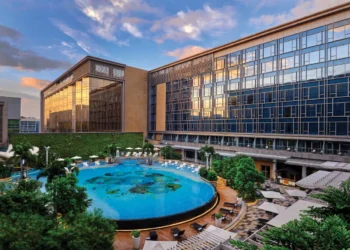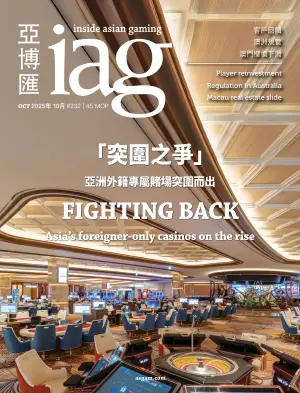In light of the recent 15-day closure of Macau’s casinos, MdME’s Carlos Eduardo Coelho presents his case for authorities to consider allowing online gaming.
Imagine a scenario where Macau GGR drops 95% year-on-year, where its hotel occupancy drops to 16%, where 28 hotels stop taking guests, where daily visitation falls to an all-time low of just 2,600 tourists and where all 41 Macau casinos are shut down.
If the Managing Editor of IAG had read this article a month ago, it would sound so unbelievable he would ban me from writing ever again! Unfortunately, this is the scenario that has faced Macau over the past month.
The outbreak of the novel coronavirus (COVID-19) in mainland China severely impacted Macau’s gaming industry and forced it to face a new social and economic reality when Chief Executive Ho Iat Seng announced the closure of all casinos for 15 days from 5 February 2020.
 “This is a difficult decision, but we have to do it, for the health of our Macau residents,” he said during the press conference where the bombshell announcement was made.
“This is a difficult decision, but we have to do it, for the health of our Macau residents,” he said during the press conference where the bombshell announcement was made.
Although such a decision is not unprecedented – authorities ordered the temporary closure of all casinos for 33 hours during Typhoon Mangkhut in September 2018 for safety reasons – the duration of such closure is unheard of.
Before the casino closure was announced, mainland Chinese authorities had already stopped issuing individual visas for tourists coming to Macau, with no outlook as to when such decision shall be lifted. Ferry services to and from Hong Kong were suspended and several countries and regions forbid or limited travel to and from Macau.
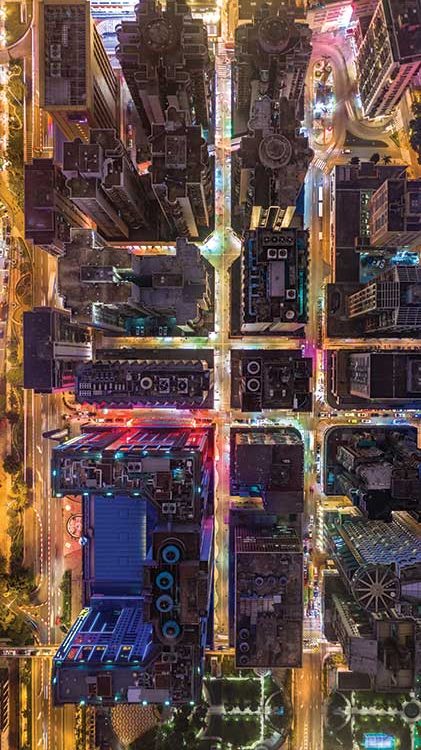 It is well known that the gaming industry in Macau is highly dependent on visitors from mainland China (from a total number of 39 million visitors that entered Macau in 2019, more than 27.5 million were from the mainland). More than 80% of Macau’s annual government revenue derives from the special gaming tax and other contributive obligations of the gaming concessionaires.
It is well known that the gaming industry in Macau is highly dependent on visitors from mainland China (from a total number of 39 million visitors that entered Macau in 2019, more than 27.5 million were from the mainland). More than 80% of Macau’s annual government revenue derives from the special gaming tax and other contributive obligations of the gaming concessionaires.
The actual financial impact of this business disruption is still unknown: as a comparison, the SARS outbreak caused more than US$50 billion of damage to the global economy according to the World Economic Forum, while the brief 2018 closure cost Macau an estimated US$184 million in revenue.
Recent forecasts suggest Macau’s GGR for the first quarter of 2020 might decrease by up to 50% year-on-year, there being no great expectation of a significant turnaround in the near term. All estimations as of this stage are wild guesses and completely dependent on two major variables, the re-opening of the casinos and, most importantly, the lifting of travel restrictions imposed on mainland citizens.
One thing is certain: this new reality has exposed the frailty of Macau’s economy and its long-discussed overreliance on the brick-and-mortar gaming industry.
WHAT SHOULD MACAU DO?
What should Macau do now? All stakeholders within the industry are well aware of the efforts to push forward economic diversification aimed at steadily shifting Macau’s focus from a gaming centric city to a tourism centric one (focusing on MICE, Entertainment, F&B). At the same time, other alternatives are being explored (financial services hub, platform for the Portuguese speaking countries, Greater Bay Area integration). Such efforts should be praised because they are indeed the way forward. However, a tourism driven economy is still, by definition, one that is reliant on people coming to Macau. It is, therefore, still exposed to disruptive factors that prevent or disincentivize travelling. As to the other alternatives, their outcomes are uncertain, and it will take time (and money) to see them through.
Let’s face it, Macau is a gaming market and gaming will continue to be its economic engine, hopefully with a lower degree of dependency. Given Macau’s reality, and despite the non-gaming efforts that should continue and be incentivized, Macau authorities could also consider, as a complement (and not as an alternative), diversification within gaming. It may therefore be time to consider the possibility of allowing online gaming operations in Macau.
ONLINE GAMING
Jason Ader, former board member at Las Vegas Sands, told CNBC the recent virus outbreak has pushed gamblers to illegal online gambling and to the only market within Asia where online gambling is regulated: the Philippines.
“Daily online gambling is up 90% over the Lunar New Year holiday compared to last year,” he said.
Today online gaming is widespread around the world and is a reality Macau cannot ignore. According to a report produced by Edison Investment Research, the global online gaming market generated £40 billion of gross gaming revenues (GGR) in 2018. The shift towards online gaming is being driven by different factors, in particular a rising mobile penetration (the advent of a mobile generation), product innovation and, very importantly, the introduction of local regulation across a growing number of countries.
However, the recent trend within Asia is going in the opposite direction, largely driven by a recent crackdown on online gaming promoted by mainland authorities. Late last year, Cambodia declared a ban on all its online operations from January 2020 onwards. Within the same period, the Philippines issued a moratorium on new online licenses. Even in Macau, our regulator has been increasingly scrutinizing online practices focusing on the illegal use of the Macau Gaming Concessionaires branding or protected trademarks, via online gambling services.
I understand the concerns underlying mainland policies. It is argued that the rise of online gambling has resulted in an increase in criminality and social problems in China. Several media outlets have posted that online gambling connected with telecom fraud has “caused huge losses to the victims and their families.” It has been further conveyed that this practice creates notorious loopholes regarding Know Your Customer protocols, being therefore dubbed as a channel for money laundering (because it allows players to conceal their identities).
Despite the assumed mainland policy, IAG reported in its October 2019 edition, “Several sources suggest that the cross-border casino market, including online gaming and proxy betting, has surpassed the gross gaming revenue of land-based casino in Asia, exceeding US$50 billion, much of it flowing from China.”
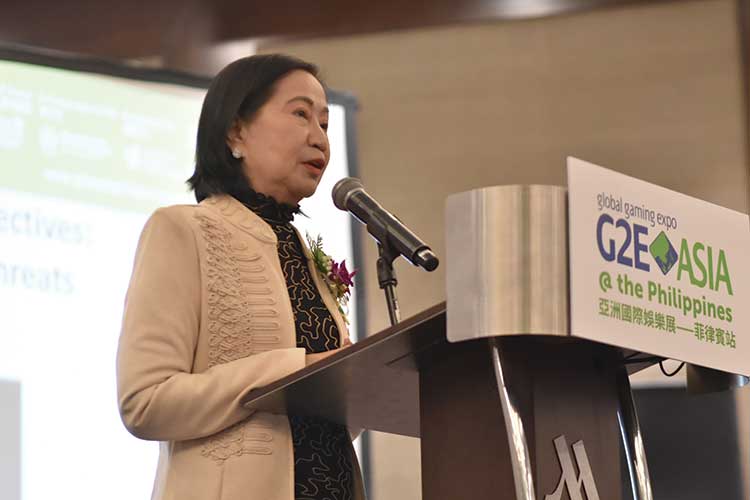
No doubt the above malpractices and social harms should be prevented and Macau authorities should do their part in punishing illegal behaviors. However, an absolute prohibition must not be (as it is often not) the only solution. Provided stringent regulation is put forward (addressing KYC and AML concerns, protecting those involved, establishing limits for operating and engaging in online gaming), and that selected geo-blocking restrictions (including to mainland customers) are enforced, Macau does not need to also be an addressee of mainland policies.
ONLINE GAMING ADVANTAGES
The advantages of online gaming to Macau are quite straightforward: first and foremost, it could generate an additional tax revenue stream, one that is not dependent on an influx of tourists. That revenue does not need to cannibalize the existing land-based market. In fact, the revenue already exists. It is simply not flowing to Macau and, in many cases, is being pocketed by operators that could not care less about harm minimization and compliance.
Secondly, it allows our gaming industry to tap into new player demographics. Specifically aimed at all Millennials and Generation Z, online gaming could be key to securing a new generation of customers: one that may not be interested in sitting at a rowdy baccarat table. It opens countless opportunities to experiment with new games and technologies.
Lastly, online gaming may help create hundreds (if not thousands) of high skilled jobs in the sector. The type of jobs may span from gaming developers and engineers to professionals in IT, marketing, financial services, management, auditing, to other ancillary services. Additional high-skill jobs could be created to support the necessary regulatory and technological infrastructure to effectively regulate online gaming. If there is a Labour policy requiring dealers to be Macau residents, why not a similar policy applicable to the software engineers that get these operations up and running?
In a regulated environment, all the above could be achieved, with full consideration for the drawbacks that have been identified. Betting limits can be placed on a player’s account, like setting deposit limits, which can prevent problem gambling. This measure allows for protection of minors and vulnerable people, preventing excessive and unregulated gambling and addictive behaviors. Depending on the technical framework used, online gaming may be better monitored than a land-based operation, therefore addressing money laundering concerns and ensuring security and public order.
THE LEGAL FRAMEWORK
Macau’s gaming framework is not unfamiliar with online gaming.
Online gaming is referred to under Law 16/2001 (Macau Gaming Law) as “interactive gaming” and defined as the playing of games of chance that meet the following criteria: (i) they are offered in Macau casinos in the form of table games or gaming machines; (ii) they offer a prize in cash or in kind that can be won in accordance to their respective rules; (iii) players participate by means of telecommunications (including telephone, fax, internet, data networks and video or digital data transmission); and (iv) players make or agree to make payments in cash or in kind to play the game.
The commercial operation of online gaming can only be pursued by privately owned entities that have been granted a concession to that effect, through entering into a concession contract with the Macau Government (Section 4 of Macau Gaming Law). However, the Macau Government has not yet issued regulations governing the concession and operation of online gaming (and has not launched a tender to grant these concessions). Additionally, gaming concessionaires cannot operate interactive games.
Further to this, the exclusive operators of horse racing and sports betting can offer online wagering limited to the land-based competitions they already offer. In particular online betting is already (but only) permitted in the following categories: (i) sports betting on soccer and basketball; and (ii) horse race betting.
 WHAT’S THE WAY FORWARD?
WHAT’S THE WAY FORWARD?
Discussion and preparation for the term of the current gaming concessions (set to expire in 2022 unless exceptionally extended) is already underway, paving the way for what is expected to be the brick-and-mortar market in the near future. Why not add to those discussions the possibility of regulating the offer of online gaming operations in Macau? And why not further consider allowing the incumbent sports betting operator to expand its activities by offering a myriad of new sporting possibilities (tennis, racing events, volleyball).
Such discussions could also revisit the current prohibition of gaming concessionaires running online operations. Why not allow them to operate online or crossover environment operations? The first draft version of Macau Gaming Law foresaw a preemption right for land-based concessionaires to run such operations. Provided adequate consideration is given to the interests of Macau and its residents, why not?
If there is one thing we must draw from the current reality it is that Macau should prepare its economy and society to face disruptive events, such as COVID-19. That will take a collective effort, and an honest debate, between regulator and operators and between the Macau government and Beijing.
We must all think outside the box and that means looking beyond bricks-and-mortar. Macau has created the most successful land-based gaming market in the world. It may do the same online.
Macau Authorities should not render meaningless Section 4 of Macau Gaming Law. Debate should be fostered – and not limited – in focused events, following which authorities should take an actual stand and put the idea to Macau residents. Online gaming may not be the cure to Macau’s economic dependency but it sure could be a strong palliative.









